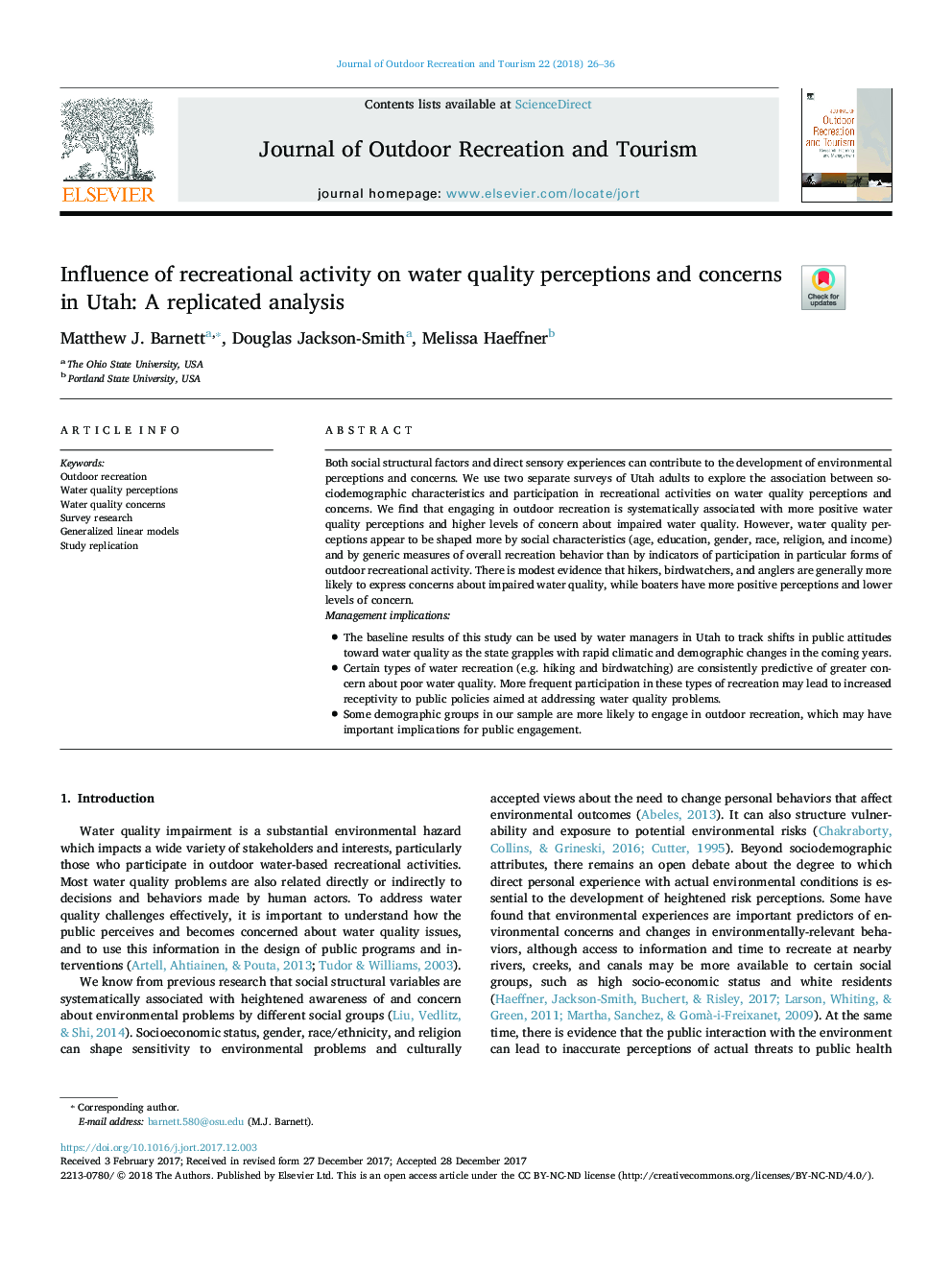| Article ID | Journal | Published Year | Pages | File Type |
|---|---|---|---|---|
| 6545183 | Journal of Outdoor Recreation and Tourism | 2018 | 11 Pages |
Abstract
Both social structural factors and direct sensory experiences can contribute to the development of environmental perceptions and concerns. We use two separate surveys of Utah adults to explore the association between sociodemographic characteristics and participation in recreational activities on water quality perceptions and concerns. We find that engaging in outdoor recreation is systematically associated with more positive water quality perceptions and higher levels of concern about impaired water quality. However, water quality perceptions appear to be shaped more by social characteristics (age, education, gender, race, religion, and income) and by generic measures of overall recreation behavior than by indicators of participation in particular forms of outdoor recreational activity. There is modest evidence that hikers, birdwatchers, and anglers are generally more likely to express concerns about impaired water quality, while boaters have more positive perceptions and lower levels of concern.Management implications
- The baseline results of this study can be used by water managers in Utah to track shifts in public attitudes toward water quality as the state grapples with rapid climatic and demographic changes in the coming years.
- Certain types of water recreation (e.g. hiking and birdwatching) are consistently predictive of greater concern about poor water quality. More frequent participation in these types of recreation may lead to increased receptivity to public policies aimed at addressing water quality problems.
- Some demographic groups in our sample are more likely to engage in outdoor recreation, which may have important implications for public engagement.
- The baseline results of this study can be used by water managers in Utah to track shifts in public attitudes toward water quality as the state grapples with rapid climatic and demographic changes in the coming years.
- Certain types of water recreation (e.g. hiking and birdwatching) are consistently predictive of greater concern about poor water quality. More frequent participation in these types of recreation may lead to increased receptivity to public policies aimed at addressing water quality problems.
- Some demographic groups in our sample are more likely to engage in outdoor recreation, which may have important implications for public engagement.
Related Topics
Life Sciences
Agricultural and Biological Sciences
Forestry
Authors
Matthew J. Barnett, Douglas Jackson-Smith, Melissa Haeffner,
